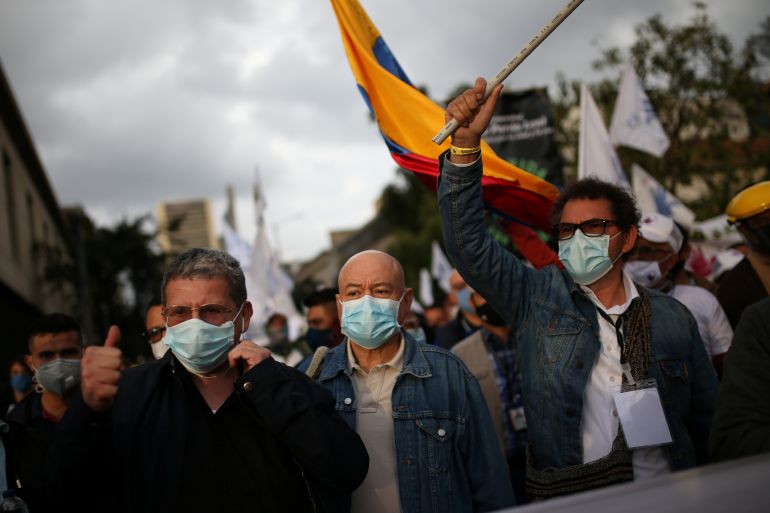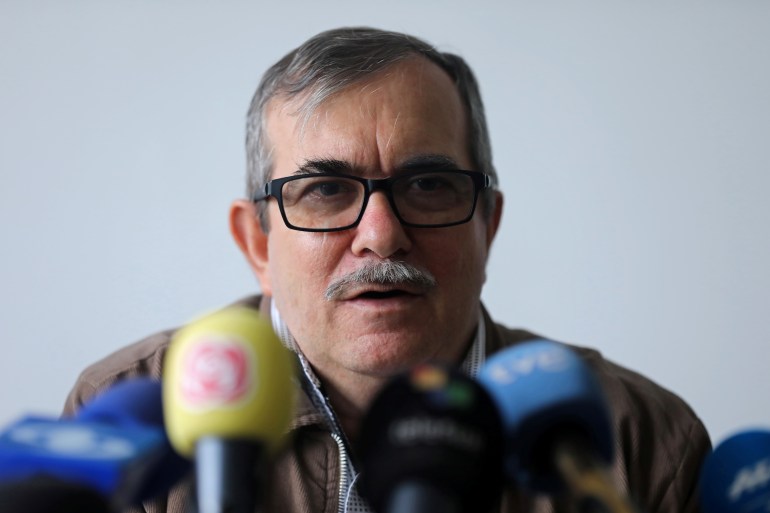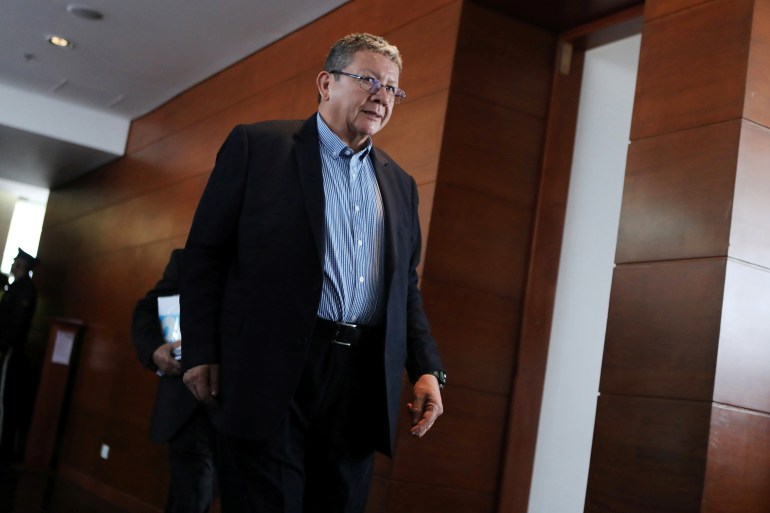Colombia court charges former FARC commanders with war crimes
Trubunal unveils first criminal charges against former FARC fighters since the 2016 peace deal.

Colombia’s Special Jurisdiction for Peace (JEP) on Thursday accused eight former commanders of the demobilised FARC fighters of war crimes and crimes against humanity for taking hostages during the country’s internal armed conflict.
This is the first time since the signing of the 2016 peace deal that the JEP has attributed criminal responsibility to former leaders of the Revolutionary Armed Forces of Colombia (FARC), which demobilised to reintegrate with society.
Keep reading
list of 3 itemsKillings of Colombia ex-FARC fighters persist amid peace process
Colombia’s FARC adopts new name as it rebrands itself
“Depriving people of their freedom and setting conditions for their release, as well as their wellbeing, integrity, and life, was a war crime, especially the taking of hostages,” the JEP said in a statement read by magistrate Julieta Lemaitre.
The former commanders are also charged with other war crimes connected with the treatment of kidnap victims, including murder and torture, among others, Lemaitre said.

Among the accused are former FARC leader Rodrigo Londono – know by the nom de guerre, Timochenko – Pablo Catatumbo, Pastor Alape and Milton de Jesus Toncel. They have 30 days to accept or reject the accusations.
If the commanders accept the accusations, they will face restrictions on their freedoms for five to eight years.

However, if they reject them, they could face up to 20 years in jail per the terms of the peace deal which ended the FARC’s part in a conflict that has left 260,000 dead and millions displaced.
The JEP is a tribunal created under the 2016 peace deal to prosecute former FARC members and military leaders for alleged war crimes.
There was no immediate response from the former FARC commanders. Last year, former leaders – including Timochenko – sought forgiveness for kidnappings.
FARC fighters used kidnappings to fund their war against the state, while captured military or government personnel were used to pressure authorities into releasing jailed rebels, the JEP said.
Kidnapping victims say they continue to suffer from mental health damage caused by the physical and emotional suffering they were subjected to.